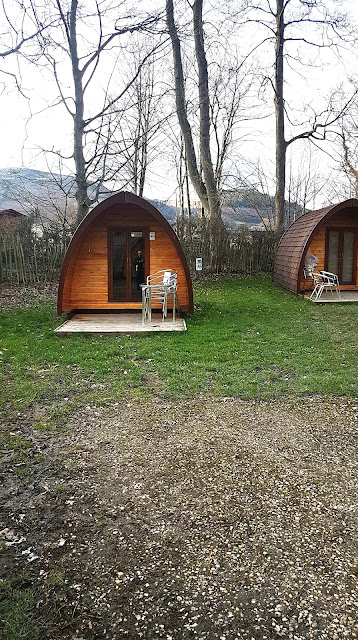Llangollen town in North- East Wales
Scientists who enlisted the help of bees to hunt for plant-derived antibacterial drugs have discovered a "Welsh Manuka honey".
Cardiff University experts analysed the honey created by bees from 250 Welsh hives to find plants they had visited with high antimicrobial properties.
They uncovered a honey in Gwynedd "as potent" as New Zealand's famed Manuka.
The team is now setting up an urban honey-making scheme to see if it can be brought to market.
Prof Les Baillie, of the university's School of Pharmacy and Pharmaceutical Sciences, said the joint study with the National Botanic Garden of Wales had created more excitement than anything else in his three decades in science.
'Amazed us'
"It's one of those projects that has amazed us as we have gone through. Every time we turn around we find something else quite cool," he added.
The team discovered two hives in the garden of amateur beekeeper Chris Hickman, of Tywyn, Cardigan Bay, which created honey with as much antibacterial power as that from the nectar of the Manuka tree.
"Two hives will never replicate New Zealand's thousands of tonnes of Manuka honey a year," Prof Baillie said.
However, by identifying the plants visited by the Tywyn bees, such as woodruff, the team may be able to increase production to a feasible scale.
"We're looking at growing those plants in various areas around Cardiff, including one on the roof of the St David's Shopping Centre, which already has its own bee hives," he explained.
However, Mr Hickman, 55, a nurse, has a less scientific theory about what made his honey so powerful.
"My personal opinion is it was our low-intervention approach (to beekeeping).
"I don't get any honey more than a couple of times a year, I don't dictate what the bees are doing, I don't interfere with the hives like a lot of modern beekeepers do."
Antibacterial qualities
The university's project set out to find plant-based sources for drugs capable of fighting antibiotic-resistant infections, asking beekeepers from across Wales to send samples.
Honey has been used for thousands of years to treat sore throats, wounds and infections, due to its bacteria-killing compounds.
But the antimicrobial activity of any particular honey depends on the properties of the plants visited by the bees which made it.
Cardiff University and the National Botanic Garden of Wales, in Llanarthne, Carmarthenshire, sequenced samples from 20 honeys with the highest antibacterial qualities and identified the plants which contributed.
Prof Baillie said it was only possible because Wales was among the first countries to DNA barcode all of its indigenous flowering plants - 1,143 of them.
The team now hopes both to extract the antimicrobial components from these plants and to synthesize them in labs.
Drugs made from these could be used to fight superbugs, such as MRSA, and to treat wounds and infections.
http://www.bbc.com/news/uk-wales-34965010
http://www.bbc.com/news/uk-wales-34965010

Welsh cakes for Sunday
 |


































































No comments:
Post a Comment